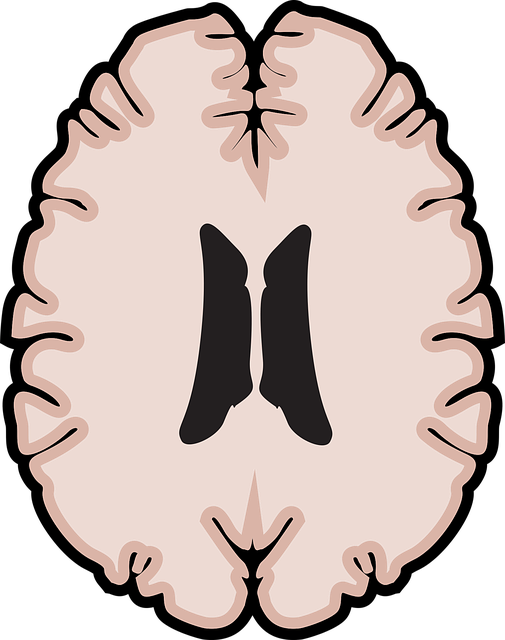The Westminster Cognitive Behavioral Therapy (WCBT) framework offers an evidence-based approach to enhance mental wellness programs, focusing on identifying and modifying negative thought patterns. Using pre-post measurement techniques, therapists can track improvements in emotional well-being, such as enhanced emotional regulation skills and reduced mental illness stigma. Qualitative evaluations like client surveys and interviews provide deep insights into program effectiveness, while quantitative data analysis through surveys, questionnaires, and clinical assessments offers measurable evidence of success. This continuous improvement cycle enables therapists to refine WCBT techniques, adapt to diverse needs, and contribute to the advancement of mental health care, ultimately fostering a more supportive therapeutic environment.
Mental wellness programs require robust evaluation methods to ensure effectiveness and drive continuous improvement. This article explores a comprehensive framework for evaluating mental health initiatives, drawing insights from the proven Westminster Cognitive Behavioral Therapy (CBT) approach. We delve into key techniques such as pre-post measurement, qualitative client feedback, quantitative data analysis, and leveraging findings for program enhancement. By embracing these methods, organizations can optimize their mental wellness programs, fostering better outcomes and overall well-being.
- Understanding Westminster Cognitive Behavioral Therapy (CBT) Framework
- Assessing Program Effectiveness: Pre-Post Measurement Techniques
- Qualitative Evaluations: Client Feedback and Interviewing
- Quantitative Data Analysis: Statistics and Metrics for Mental Health Programs
- Continuous Improvement: Using Evaluation Findings for Program Enhancement
Understanding Westminster Cognitive Behavioral Therapy (CBT) Framework

The Westminster Cognitive Behavioral Therapy (CBT) Framework is a structured and evidence-based approach to mental wellness program evaluation. CBT focuses on identifying and changing negative thought patterns and behaviors that contribute to various mental health conditions. By understanding the interconnectedness of thoughts, feelings, and actions, this framework guides practitioners in assessing and addressing complex psychological issues. It involves collaboration between clients and therapists to set specific, measurable goals and develop tailored strategies for coping with challenges.
This therapeutic approach emphasizes the importance of cultural sensitivity in mental healthcare practice. Recognizing that experiences and beliefs vary across cultures, CBT incorporates adaptable techniques to ensure effective treatment for diverse populations. Moreover, by integrating insights from the Mental Wellness Podcast Series Production and Mental Illness Stigma Reduction Efforts, the Westminster CBT Framework promotes inclusive practices that foster open communication and support individuals on their journey towards improved mental wellness.
Assessing Program Effectiveness: Pre-Post Measurement Techniques

Evaluating the effectiveness of a mental wellness program is a multifaceted process, and one powerful tool in the therapist’s arsenal is pre-post measurement techniques. These methods involve assessing participants’ mental health states both before and after the implementation of a therapy program, such as Westminster Cognitive Behavioral Therapy (WCBT). By comparing these two data points, therapists can gauge significant changes and improvements in clients’ emotional well-being.
Pre-post measurements are particularly useful for tracking progress in areas like emotional intelligence and trauma support services. For instance, an increase in emotional regulation skills and a decrease in symptoms associated with mental illness stigma reduction efforts can be noted through these comparisons. This approach allows therapists to tailor their interventions, ensuring that the program effectively addresses the specific needs of the participants.
Qualitative Evaluations: Client Feedback and Interviewing

Qualitative evaluations are a powerful tool in mental wellness program assessment, offering insights into clients’ experiences and perceptions. One effective method within this category is gathering client feedback through surveys or interviews. These direct interactions provide a nuanced understanding of the program’s impact on individuals’ lives. For instance, clients can share how Westminster Cognitive Behavioral Therapy (WCBT) techniques helped them manage stress reduction methods or prevent burnout, which are key focus areas in many wellness initiatives.
Interviews allow for an even deeper exploration, as therapists can probe into personal narratives and the development of inner strength. This qualitative data is invaluable for refining programs, ensuring they align with clients’ needs and expectations. By incorporating these feedback mechanisms, mental health professionals can continuously improve their approaches, making them more effective in supporting individuals on their journeys to improved mental wellness.
Quantitative Data Analysis: Statistics and Metrics for Mental Health Programs

Quantitative data analysis plays a pivotal role in evaluating mental wellness programs, offering valuable insights through statistical methods and metrics tailored to mental health initiatives. This approach involves collecting and interpreting numerical data to measure the effectiveness of interventions, such as Westminster Cognitive Behavioral Therapy (WCBT). By employing techniques like surveys, questionnaires, and clinical assessments, researchers can gauge changes in symptoms, participant engagement, and overall program impact. Metrics may include reduction in anxiety or depression scores, adherence rates, and improvements in quality of life, providing concrete evidence of therapy’s success.
For instance, a mental wellness journal and journaling exercise guidance can be used to collect quantitative data over time, allowing for the analysis of trends and progress. Similarly, burnout prevention strategies for healthcare providers might involve tracking participation rates and satisfaction levels through surveys, ensuring program effectiveness and participant well-being. Additionally, mental wellness podcast series production could benefit from analytics that measure listenership, engagement, and listener feedback, providing qualitative and quantitative insights into public interest and perceived benefits of mental health initiatives.
Continuous Improvement: Using Evaluation Findings for Program Enhancement

Mental wellness programs thrive on continuous improvement, and evaluation findings play a pivotal role in this process. The insights gained from assessing program effectiveness allow therapists, such as those practicing Westminster Cognitive Behavioral Therapy (WCBT), to refine their approaches. By implementing evidence-based changes based on evaluations, professionals can enhance client outcomes. This iterative process encourages the adaptation of stress reduction methods and empathy-building strategies to meet evolving needs.
Additionally, risk management planning for mental health professionals benefits from evaluation data. Identified challenges and successes guide the development of more robust strategies. Through this approach, WCBT therapists not only improve existing programs but also contribute to a growing body of knowledge in mental health care, fostering a more supportive and effective therapeutic environment.
The evaluation of mental wellness programs is a multifaceted process that leverages various methods, including the Westminster Cognitive Behavioral Therapy (CBT) framework, pre-post measurement techniques, qualitative client feedback, and quantitative data analysis. By combining these approaches, mental health professionals can gain comprehensive insights into program effectiveness, identify areas for improvement, and continuously enhance services to better support clients’ well-being. Incorporating evaluation findings into program design ensures that interventions remain evidence-based and tailored to the evolving needs of those seeking mental health support.









